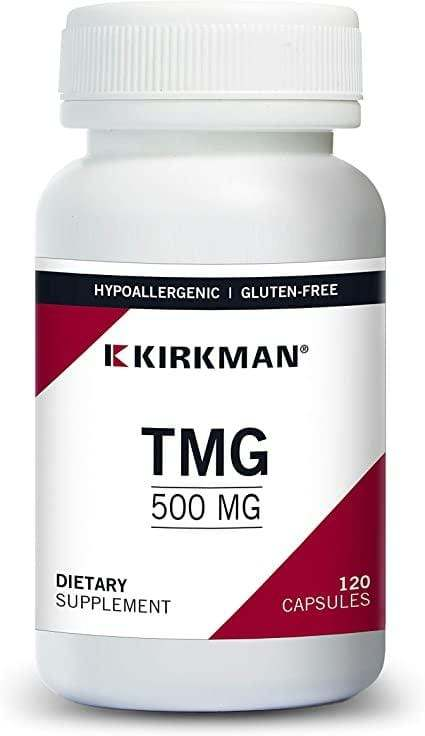How Long Do Magnesium Supplements Take to Work?


Related products
Introduction
Magnesium, a crucial mineral in the human body, plays a pivotal role in over 300 enzymatic reactions, including energy production, muscle function, and nervous system regulation. Its significance is further underscored in the context of health conditions such as muscle cramps, cardiovascular diseases, and anxiety, where magnesium supplements are frequently recommended. Dr. Emily White, a nutrition expert, states, "Magnesium's role in maintaining health cannot be overstated, and supplements can be vital for those not receiving enough from their diet." This article delves into the various factors influencing the time it takes for magnesium supplements to work, a subject of considerable variability and complexity.
Understanding Magnesium Supplements
Magnesium supplements come in various forms, including magnesium citrate, magnesium oxide, and magnesium glycinate, each with unique benefits and use cases. Magnesium citrate, known for its bioavailability, is often used for constipation relief, while magnesium oxide serves as a remedy for acid reflux and migraines. Magnesium glycinate, recognized for its calming effects, is preferred for addressing sleep disorders and anxiety.
The efficacy of these supplements is influenced by their absorption rates. Dr. Mark Allen, a gastrointestinal specialist, explains, "Magnesium citrate and glycinate have higher bioavailability compared to magnesium oxide, meaning they are more efficiently absorbed and utilized by the body." Consequently, the type of magnesium supplement chosen directly impacts its effectiveness in addressing specific health concerns.
Factors Influencing the Effectiveness of Magnesium Supplements
The effectiveness of magnesium supplements is not uniform across individuals, owing to factors like personal health and metabolic differences. A study in the Journal of Nutritional Biochemistry found that individuals with certain metabolic disorders absorb magnesium at different rates. Dietary habits also play a crucial role. For instance, high intake of calcium or phosphorus can hinder magnesium absorption.
Moreover, magnesium's interaction with other medications and supplements can either enhance or diminish its effectiveness. Dr. Laura Thompson, a clinical pharmacist, notes, "Certain medications, such as proton pump inhibitors, can lower stomach acidity, thereby reducing magnesium absorption." These interactions must be considered when estimating the time frame for magnesium supplements to exhibit their effects.
How Long Do Magnesium Supplements Take to Work?
The timeframe for magnesium supplements to take effect varies. Generally, initial effects can be observed within a few days to weeks. However, this duration is subject to the specific health condition being addressed. For muscle cramps, improvements may be noticed within days, whereas for more complex conditions like anxiety or sleep disorders, a longer period may be required.
Research provides insight into these timeframes. A study published in the American Journal of Therapeutics demonstrated that participants suffering from sleep disorders experienced significant improvements after 8 weeks of consistent magnesium supplementation. The type of magnesium plays a role too. Dr. White adds, "Magnesium citrate and glycinate, due to their higher bioavailability, may yield quicker results compared to magnesium oxide."
In conclusion, the duration for magnesium supplements to take effect is influenced by a multitude of factors, including the supplement type, individual health, and specific health conditions. Understanding these nuances is essential for effectively utilizing magnesium supplements to improve health outcomes.
Maximizing the Benefits of Magnesium Supplements
To optimize the benefits of magnesium supplements, timing and dietary considerations are crucial. Dr. Sarah Foster, a nutritionist, advises, "Taking magnesium with meals can improve absorption, especially for forms like magnesium oxide." However, magnesium citrate and glycinate may be better tolerated on an empty stomach, especially if gastrointestinal discomfort occurs.
Dosage is equally important. The NHS recommends that adult men require 300mg of magnesium daily, while women need 270mg. However, doses for supplements can vary, particularly when addressing specific health concerns. Dr. Allen cautions, "Exceeding the recommended dietary allowance without medical guidance can lead to adverse effects."
Incorporating lifestyle changes like a balanced diet rich in magnesium-containing foods (e.g., leafy greens, nuts, seeds) and regular exercise can also enhance the effectiveness of supplements. These habits support overall magnesium absorption and utilization in the body.
Potential Side Effects and Warnings
Common side effects of magnesium supplements include diarrhoea, nausea, and abdominal cramping. These are typically mild and often resolve with a dosage adjustment. However, magnesium overdose, though rare, can occur, particularly in individuals with kidney disorders. Symptoms of overdose include lowered blood pressure, irregular heartbeat, and confusion. Dr. Thompson emphasizes, "Anyone with kidney issues should be particularly cautious with magnesium supplements."
Consulting a healthcare professional is vital when experiencing adverse effects or when considering magnesium supplementation for specific health conditions. It ensures safe and effective use tailored to individual health needs.
Personal Stories and Testimonials
Personal experiences with magnesium supplements vary widely. John, 42, reports significant improvement in his sleep quality within two weeks of starting magnesium glycinate. Conversely, Emma, 35, using magnesium for anxiety, noticed gradual benefits over several months. These anecdotes highlight the variability in response to magnesium supplementation.
Conclusion
Magnesium supplements play a vital role in addressing various health issues, but their effectiveness is influenced by factors like type, dosage, individual health, and lifestyle. While some may experience benefits quickly, others may find it takes longer to notice improvements. The importance of consulting with a healthcare provider for personalized advice cannot be overstressed, ensuring safe and effective use of magnesium supplements. Understanding these nuances is key to harnessing the full potential of magnesium supplementation for improved health and wellbeing.






















 Rated Excellent by 26,523+ Reviews
Rated Excellent by 26,523+ Reviews